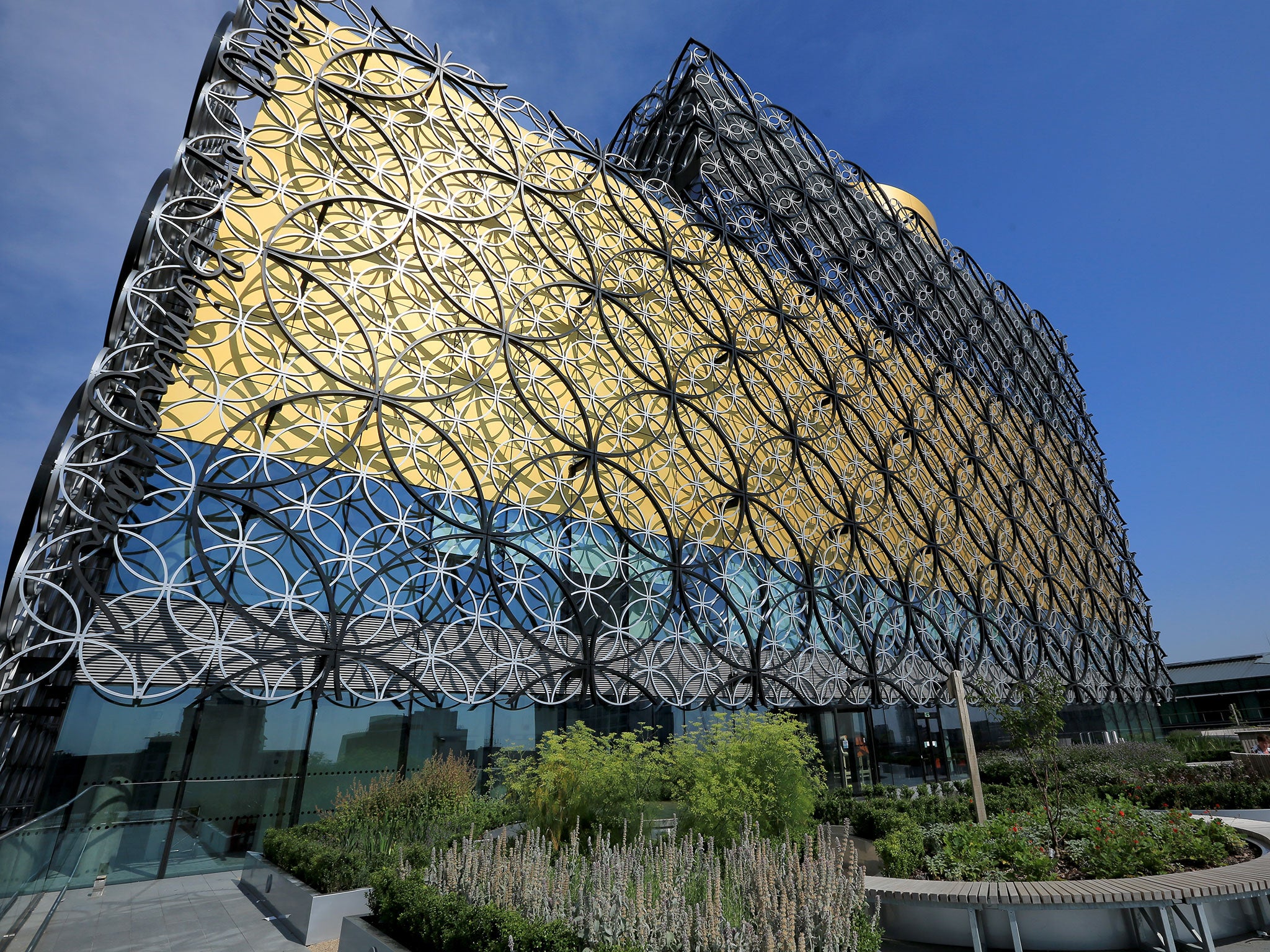Google scheme saves Birmingham Library from restricting opening hours over budget cuts
'Digital Garages' programme means building will avoid cost-saving measures

Your support helps us to tell the story
From reproductive rights to climate change to Big Tech, The Independent is on the ground when the story is developing. Whether it's investigating the financials of Elon Musk's pro-Trump PAC or producing our latest documentary, 'The A Word', which shines a light on the American women fighting for reproductive rights, we know how important it is to parse out the facts from the messaging.
At such a critical moment in US history, we need reporters on the ground. Your donation allows us to keep sending journalists to speak to both sides of the story.
The Independent is trusted by Americans across the entire political spectrum. And unlike many other quality news outlets, we choose not to lock Americans out of our reporting and analysis with paywalls. We believe quality journalism should be available to everyone, paid for by those who can afford it.
Your support makes all the difference.When Birmingham’s multimillion-pound new library announced it was being forced to slash its opening hours due to budget cuts less than two years after opening, the humiliation looked like it might turn the architectural landmark into an expensive white elephant.
But soon the city’s residents will once more be able to access the building far more often thanks to Google and a local language classes scheme.
The internet giant has backed a pop-up “Digital Garages” business programme – which nurtures digital talent – and which will move into the Library of Birmingham, in conjunction with the city’s Brasshouse Language Service.
It means the library’s amphitheatre, sweeping garden terraces, panoramic viewing gallery and Shakespeare Memorial Room will no longer be affected by Birmingham City Council’s cost-saving measures.
The library was lauded for its stunning design when it opened in 2013, but was heavily criticised earlier this year for a drastic cut in visiting hours.
The £189m structure had its opening times cut by Birmingham City Council from 73 hours to 40 hours a week at the beginning of 2015, much to the dismay of the public.
The move came despite the structure being named the only attraction outside London in the United Kingdom’s top 10 tourist hotspots, drawing in around 2.4 million people, a million more than the British Library in London.
The celebrated building will now have its operating hours increased by 26 hours a week, having agreed to host foreign language courses from Brasshouse (part of the council’s adult education services) which will relocate from another part of the city to the 10-level building in 2016, together with the Google venture.
It means the Library of Birmingham will be open on weekdays from 9am to 9pm – rather than its current times of 11am-7pm Mondays and Tuesdays, and 11am-5pm Wednesday to Saturday.
However, the extended hours will involve self-service for book lending from a limited stock, and the core library service will continue to open for just 40 hours a week. The building will remain closed on Sundays.
It is also unclear whether the job losses, which were reported to number around 100 when the cuts were announced, will be reversed.
Birmingham city council, the largest local authority in the UK, announced 6,000 job cuts and spending reductions of £300m in December.
Penny Holbrook, Birmingham’s cabinet member for skills, learning and culture, said the library – which costs around £22m annually to run – has been hit hard by funding cuts.
“I have been determined to find the right solutions for both the language service and the Library of Birmingham in these challenging times, and this offers a solution that benefits both important services,” she said.
“As well as the benefits for students of bringing the language service to the library, savings in operational costs will make it possible to open the building to the public for longer.
“We recognise that people want to use the library for longer and for a variety of uses. People don’t just want to use the library for borrowing books and reference purposes but want to use it as a study space, to work and research, to access the internet, to visit as tourists and to simply hang out and relax.”
Eileen Naughton, Google’s managing director for UK & Ireland said: “At a time when there is pressure for the UK to boost productivity to contribute to real wage increases, we believe Google can be a real growth engine that helps deliver these gains.”
The web giant will take over part of the library to offer training for small and medium-size business for the digital skills they need as part of its Digital Garages initiative.
Join our commenting forum
Join thought-provoking conversations, follow other Independent readers and see their replies
Comments